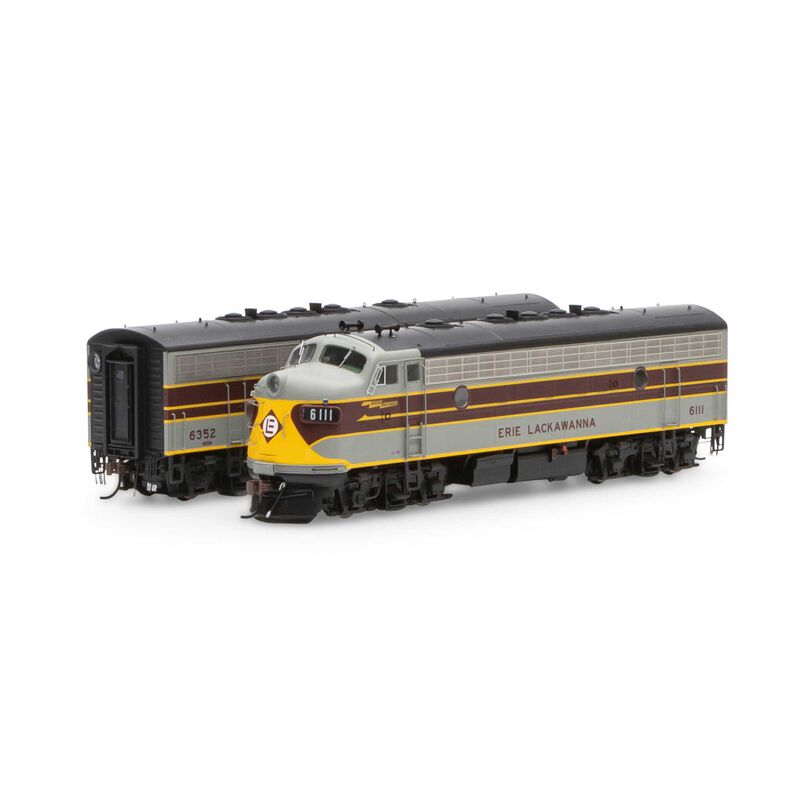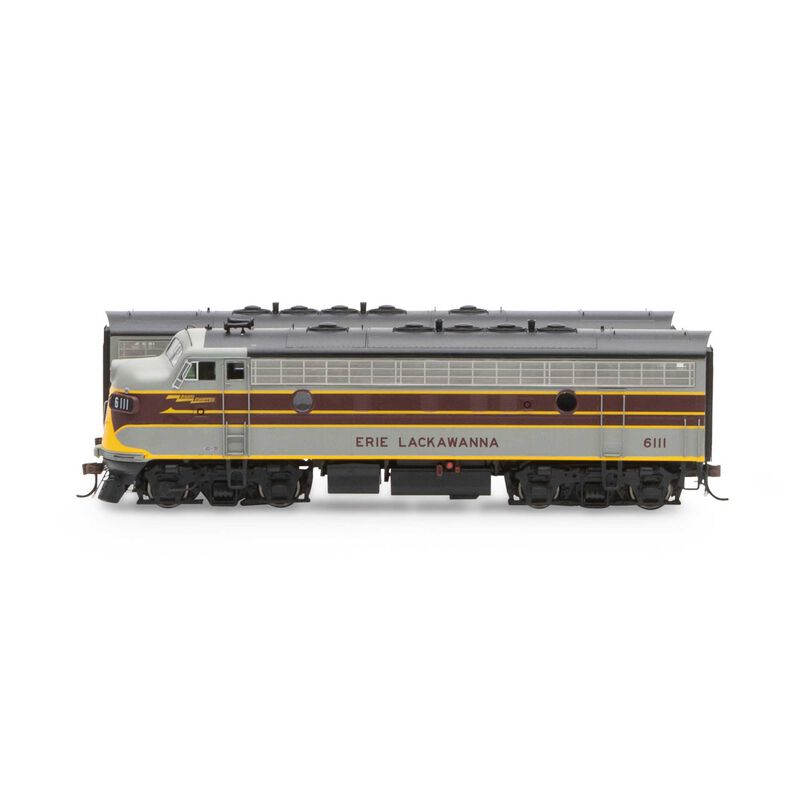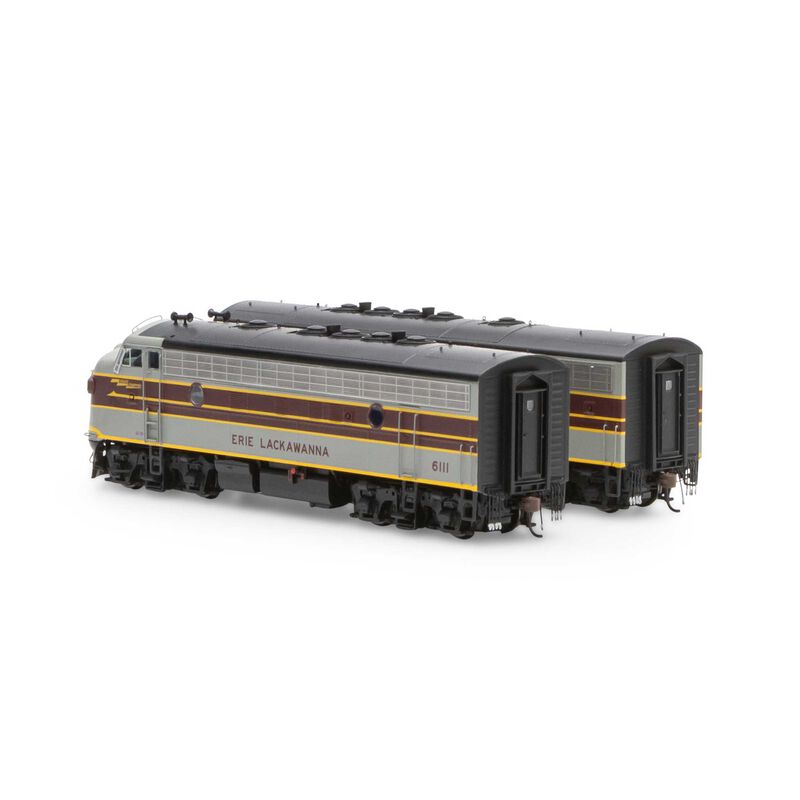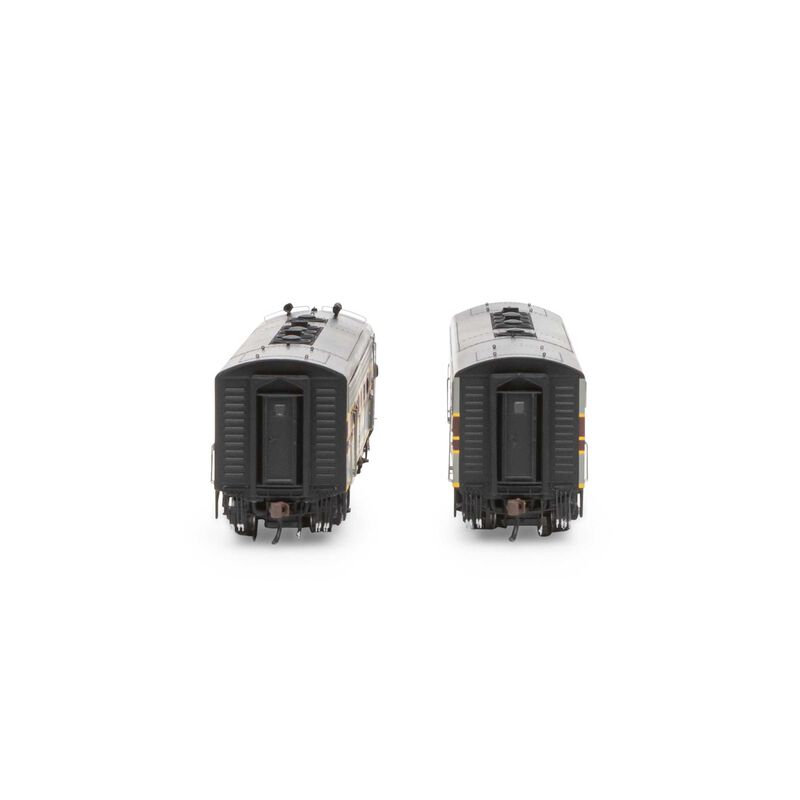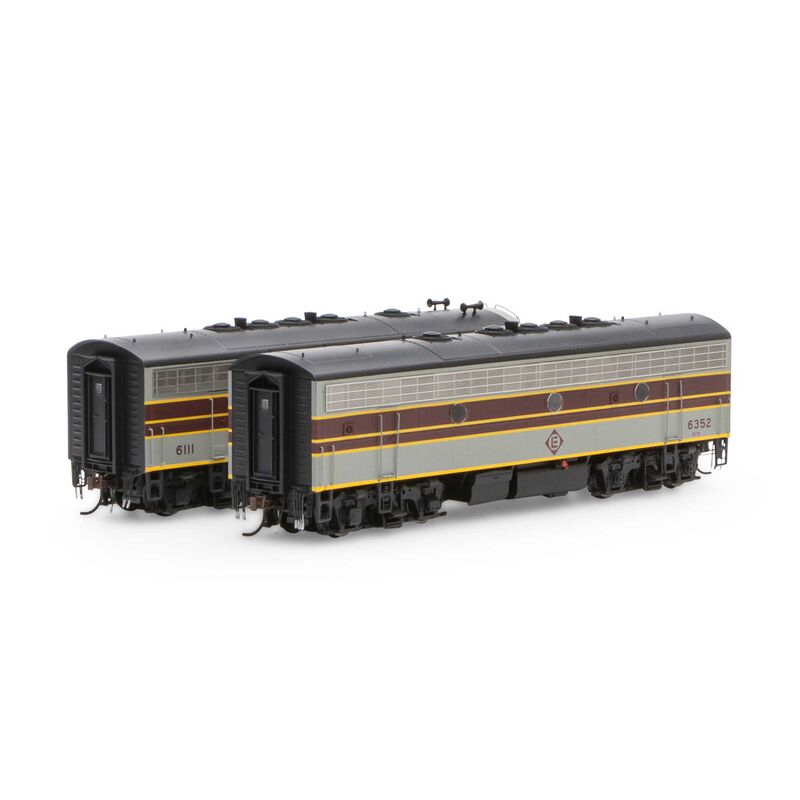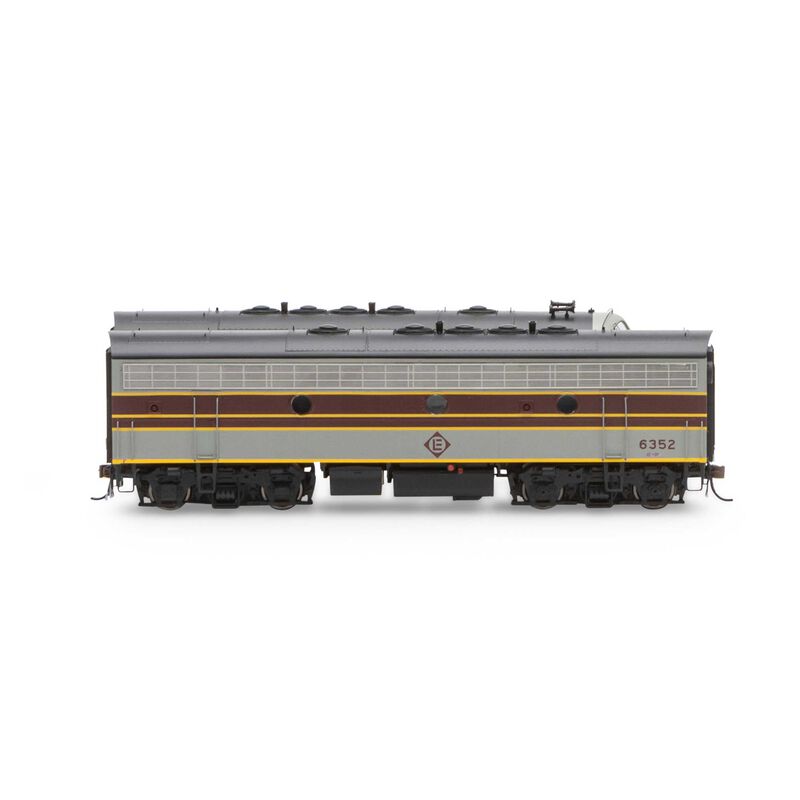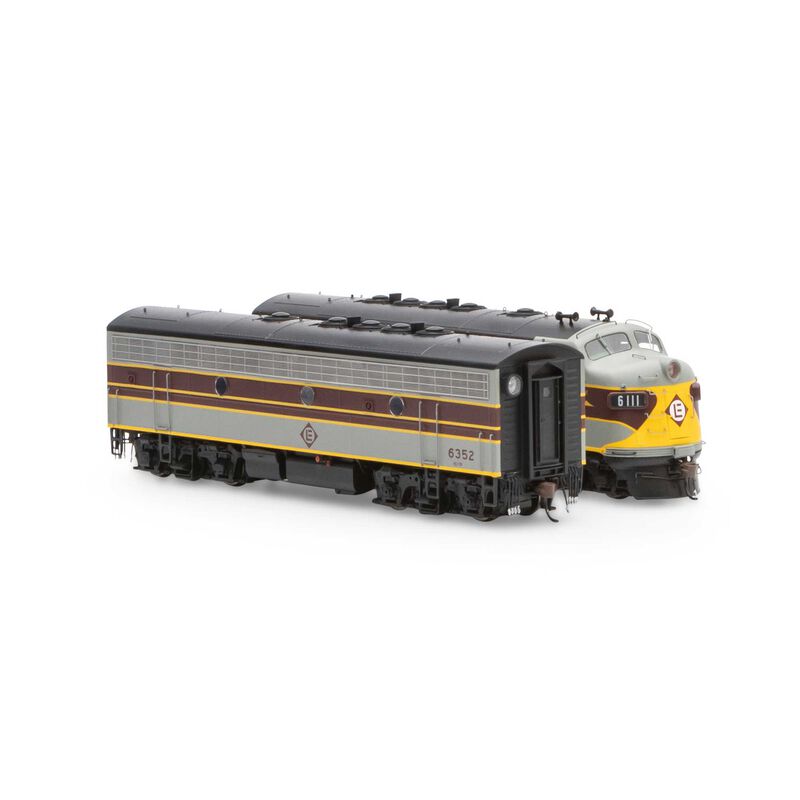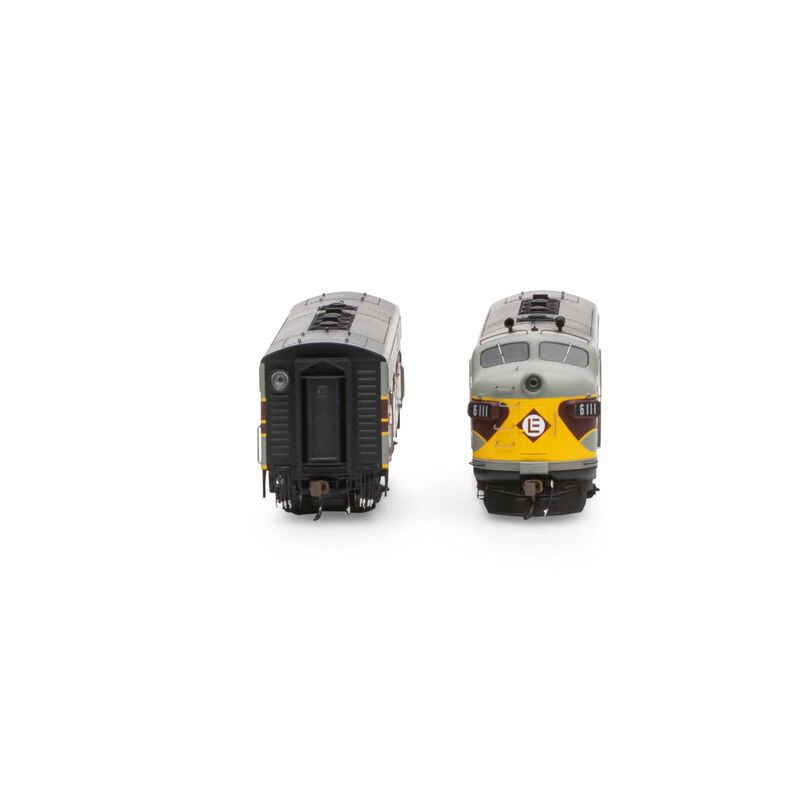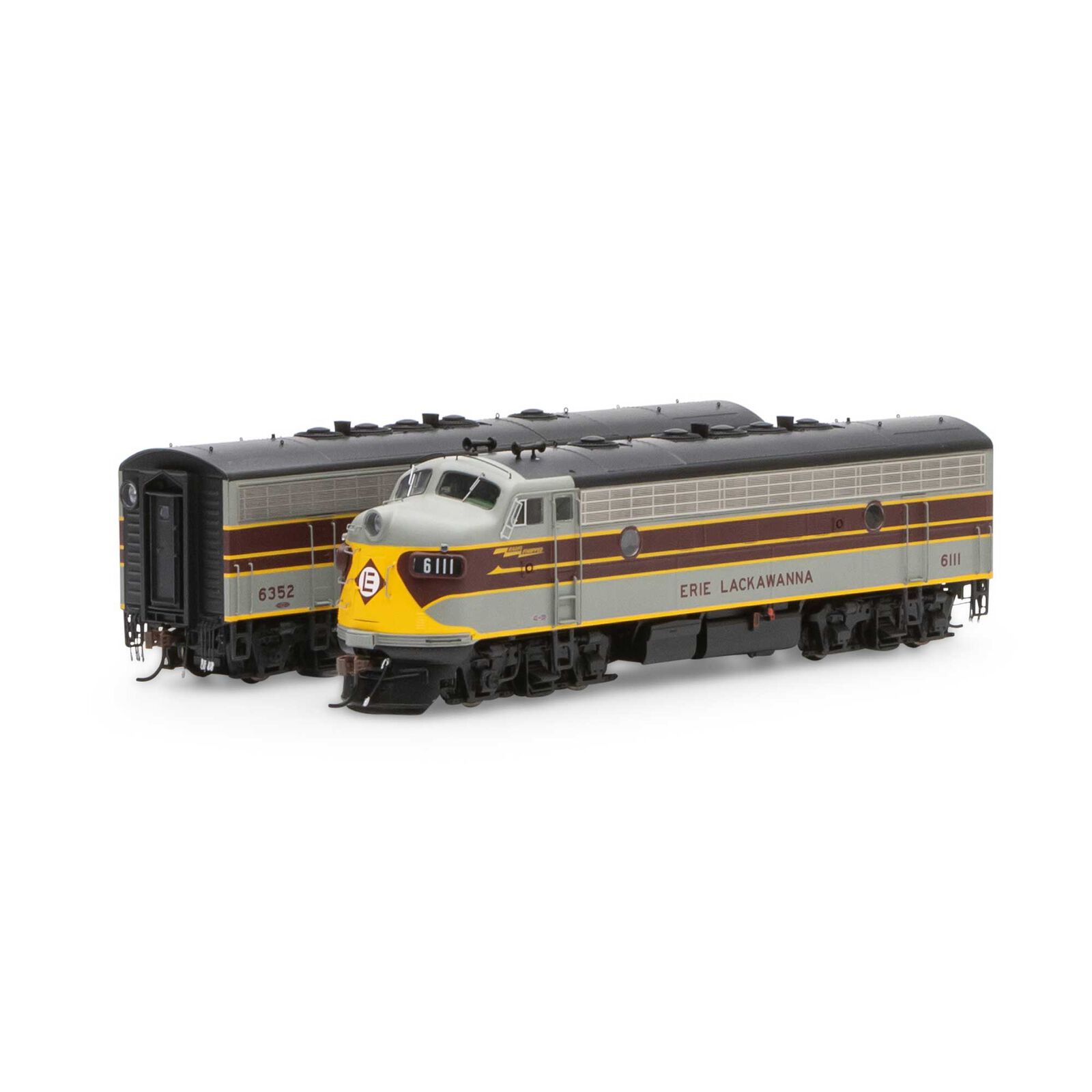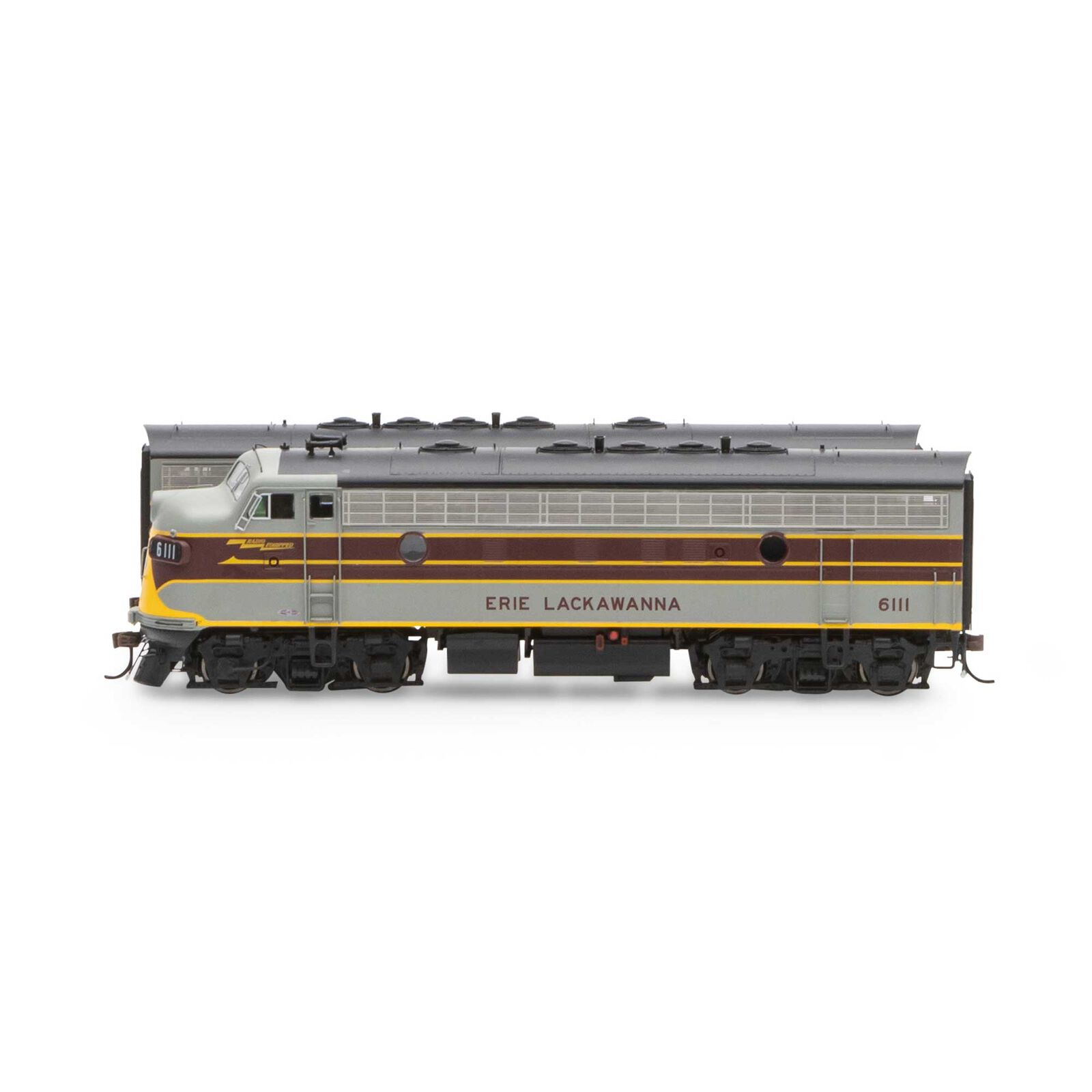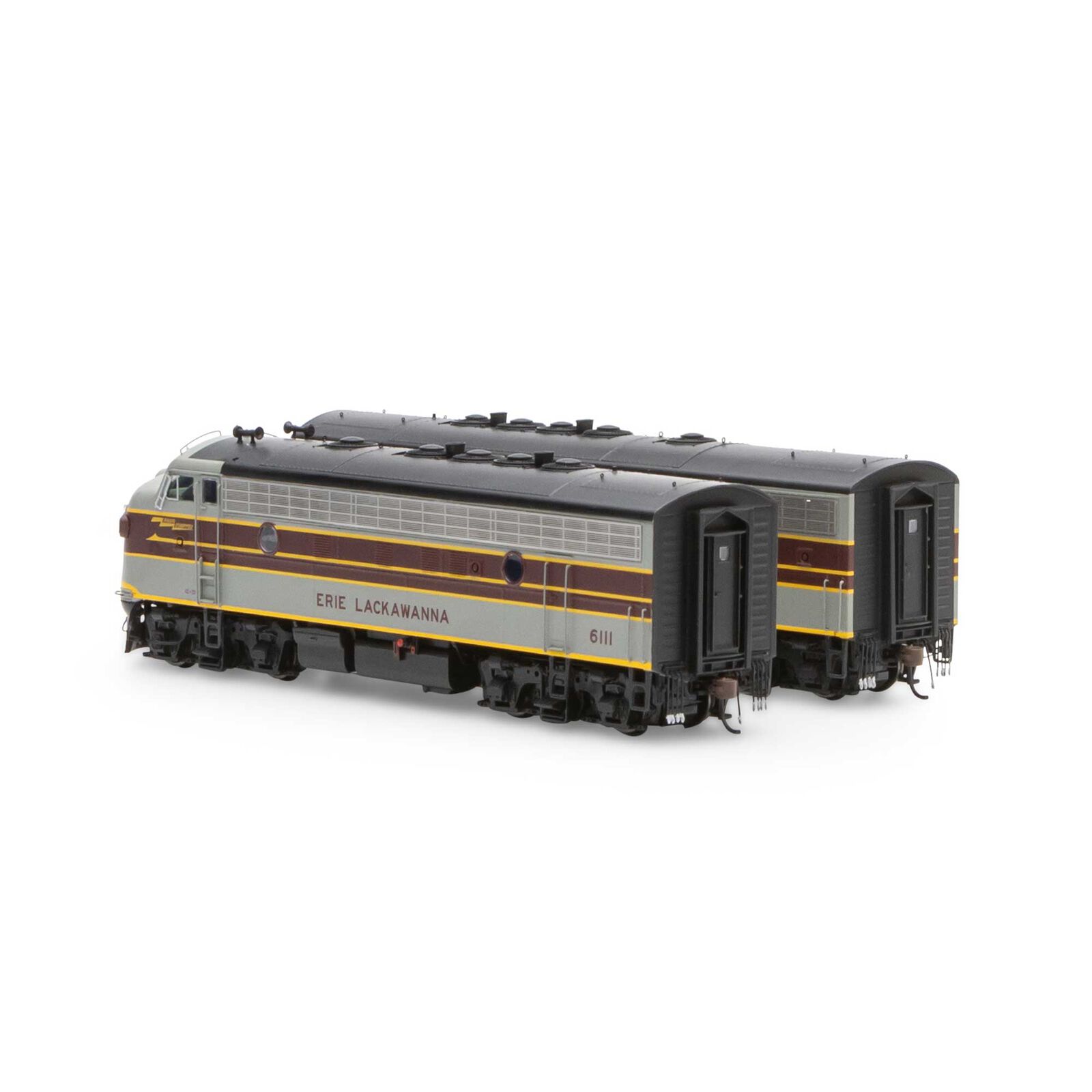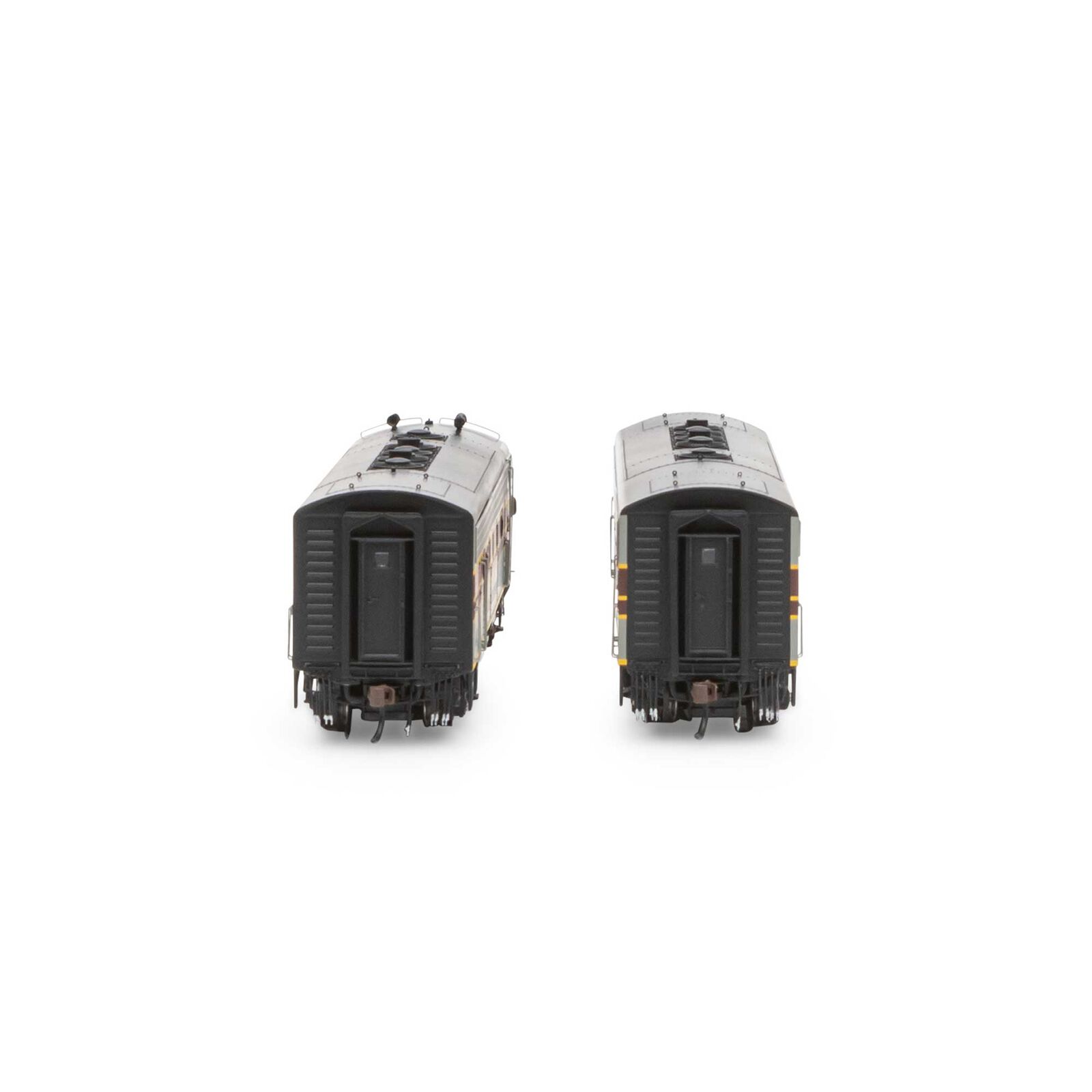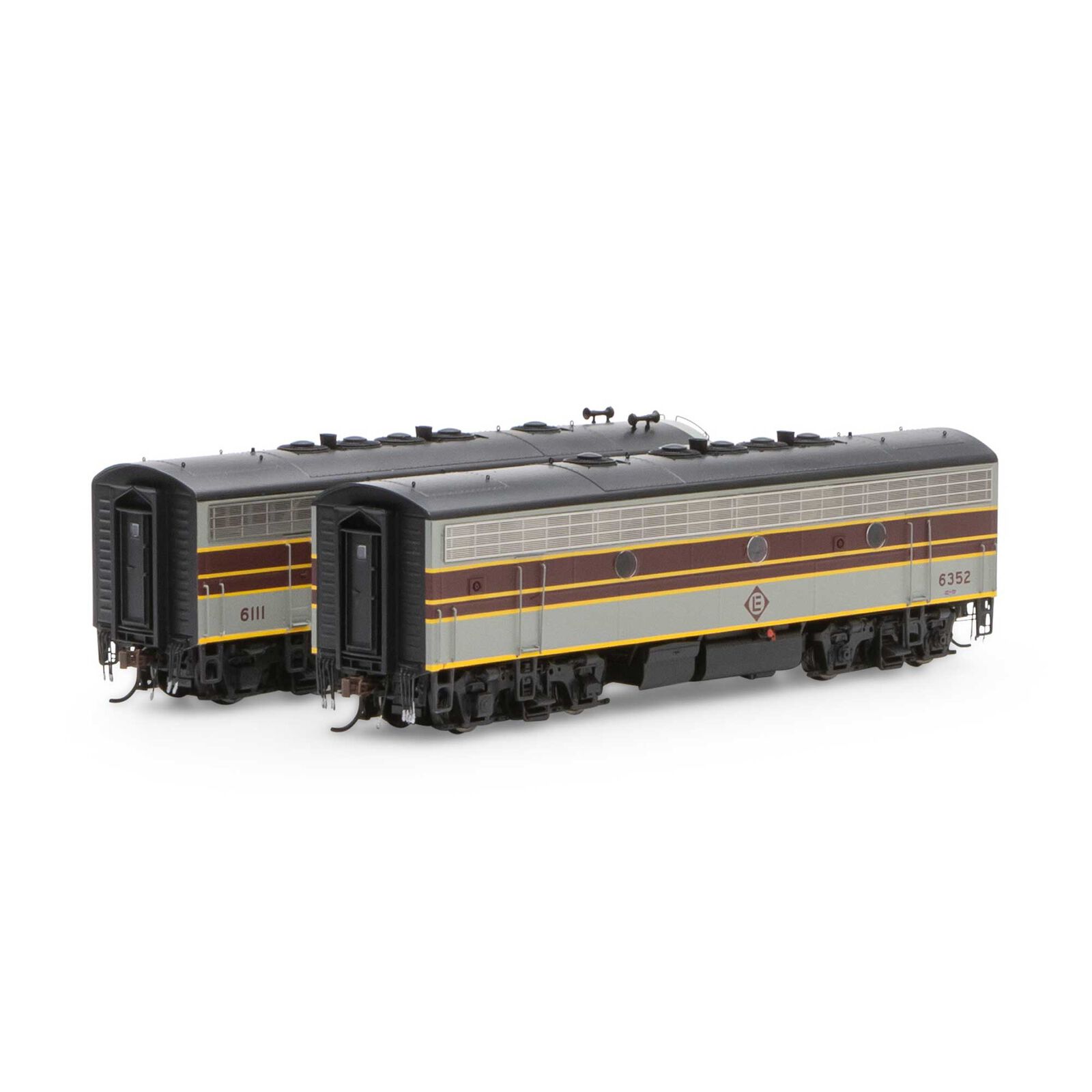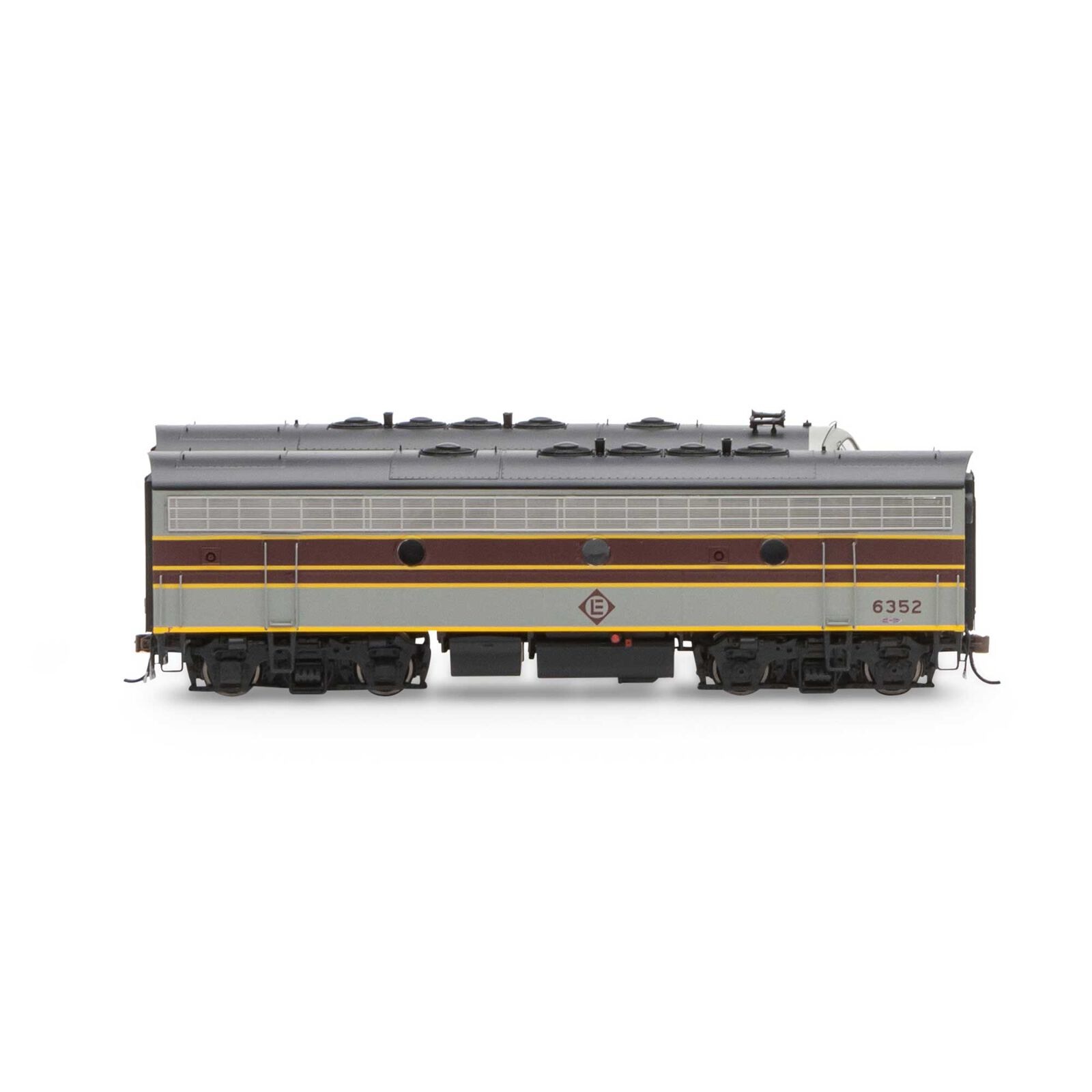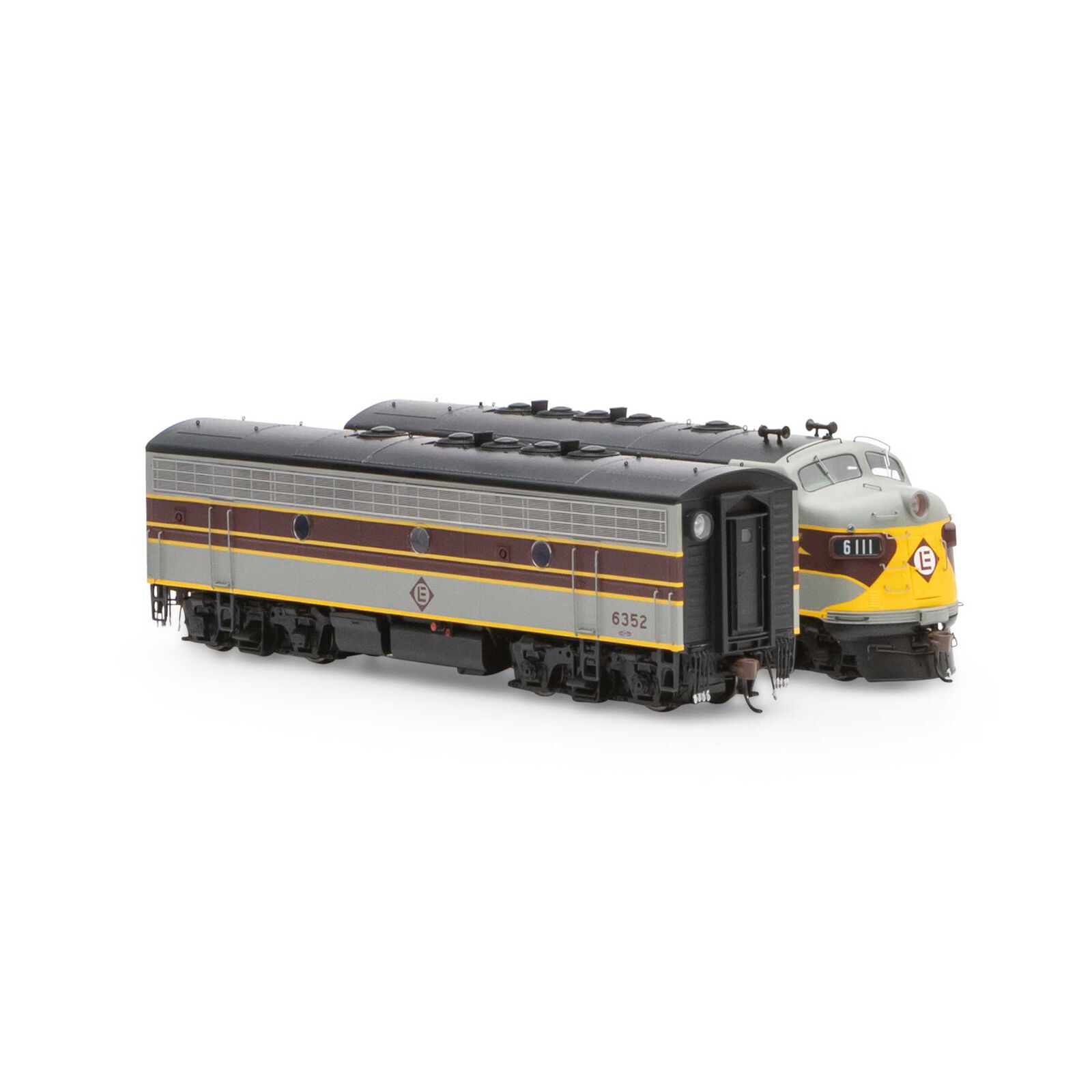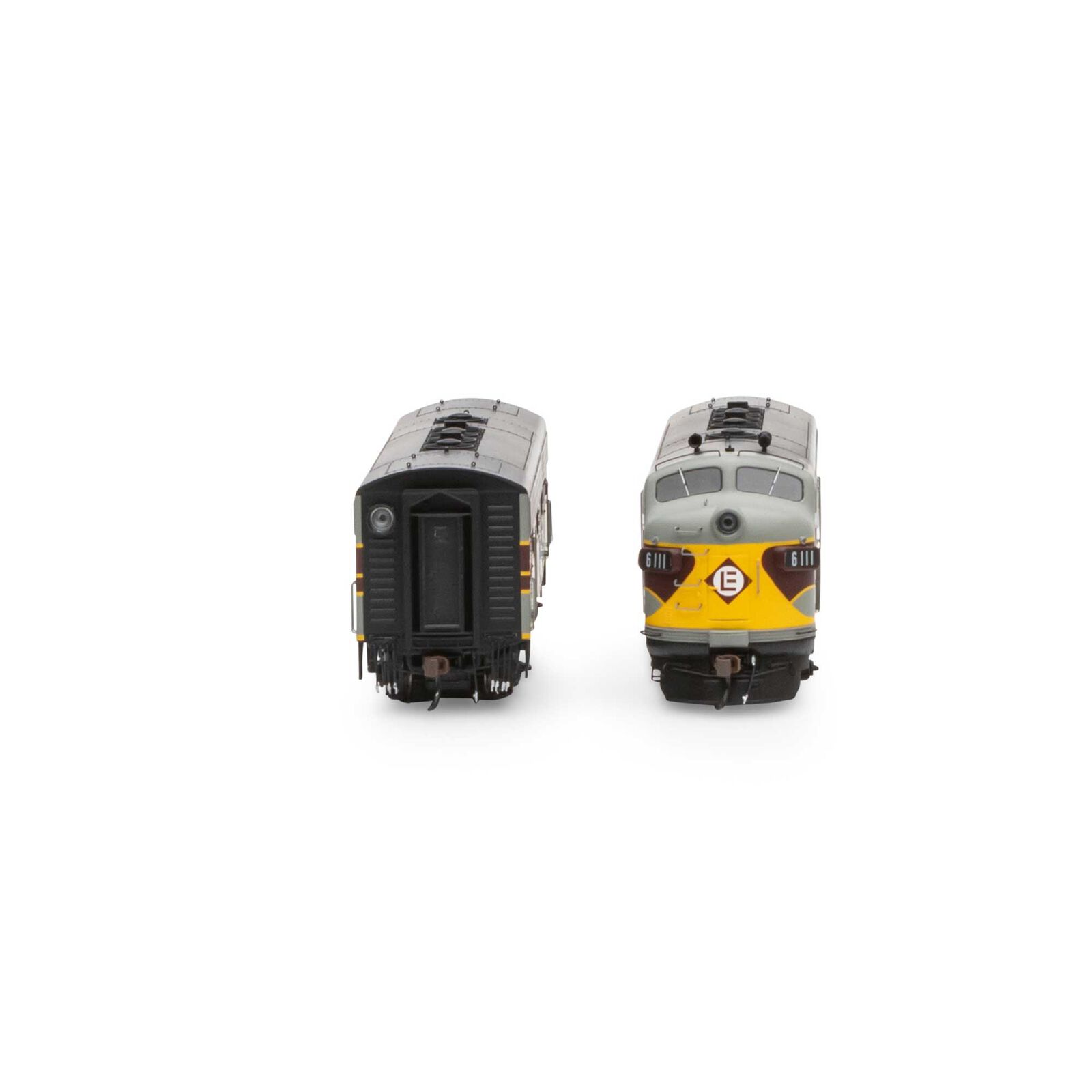HO F7 A/B with DCC & Sound, EL/Freight #6111/#6352
Selected Store
EL UNITS FEATURE
- "Blatt" Horns
- FARR Griles
- No front MU cables
- Removed side skirts
- Antennas correct per road number
- Spark Arrestors included for modeler to install (Depending on era desired)
LOCOMOTIVE FEATURES:
- Full cab interior
- Wire grab irons
- Coupler cut levers
- See-through cab windows
- Flexible rubber trainline hose
- Flexible rubber MU hoses
- Windshield wipers
- Lift rings
- Blomberg-B trucks
- Sander lines
- Directional constant lighting
- Headlight brightness remains constant
- Separately applied photo etched metal and injection molded detail parts
- Detailed fuel tank with fuel fillers, fuel gauges, breather pipes & retention tanks
- DCC-ready features Quick Plug™ plug-and-play technology with 21-pin NEM connector
- Accurately-painted and –printed paint schemes
- McHenry scale knuckle couplers - Kadee compatible
- Fully-assembled and ready-to-run
- Scaled from prototype resources including drawings, field measurements, photographs, and more
- Genesis driveline with 5-pole skew wound motor, precision machined flywheels, and multi-link drivetrain
- All-wheel drive with precision gears for smooth & quiet operation
- All-wheel electrical pickup provides reliable current flow
- Wheels with RP25 contours operate on all popular brands of track
- LED lighting for realistic appearance-including lit number boards, ground lights, and marker lights (if applicable)
- Heavy die-cast frame for greater traction and more pulling power
- Packaging securely holds model for safe storage
- Replacement parts available
- Minimum radius: 18" — Recommended radius: 22"
SOUND EQUPPED MODELS ALSO FEATURE
- Onboard DCC decoder with SoundTraxx Tsunami2 sound
- Dual cube speakers for optimal sound quality
- Sound units operate in both DC and DCC
- Individual sound boards installed in both A and B units (sound units only)
- Engine, horn, and bell sounds work in DC
- Some functions are limited in DC
- All functions NMRA compatible in DCC mode
- Excellent low-speed operation
- Program a multiple unit (MU) lashup with lead unit only horn, bell, and lights
- Lighting effects such as beacons, Gyralight where prototypically accurate
- Many functions can be altered via Configuration Value (CV) changes
- CV chart included in the box
PROTOTYPE SPECIFIC INFORMATION
EMD F-units were a line of diesel-electric locomotives produced between November 1939 and November 1960 by General Motors Electro-Motive Division and General Motors-Diesel Division. Final assembly for all F-units was at the GM-EMD plant at La Grange, Illinois and the GMDD plant in London, Ontario, Canada. They were sold to railroads throughout the United States, Canada, and Mexico.
Structurally, the locomotive was a carbody unit, with the body as the main load-bearing structure, designed like a bridge truss and covered with cosmetic panels. The so-called bulldog nose was a distinguishing feature of the locomotive's appearance, and made a lasting impression in the mind of the traveling public.
The F-units were the most successful "first generation" road (main line) diesel locomotives in North America, and were largely responsible for superseding steam locomotives in road freight service. Before this, diesel units were mostly only built as switcher locomotives, and only used in rail yards.
F-units were sometimes known as "covered wagons", due to the similarity in appearance of the roof of an F-unit to the canvas roof of a Conestoga wagon, an animal-drawn wagon used in the westward expansion of the United States during the late 18th and 19th centuries. When a train's locomotive consist included only F-units, the train would then be called a wagon train. These two usages are still popular with the railfan community.
This information is based on the copyrighted Wikipedia article "EMD F-unit"; it is used under the Creative Commons Attribution-ShareAlike 3.0 Unported License (CC-BY-SA https://en.wikipedia.org/wiki/Wikipedia:CCBYSA). You may redistribute it, verbatim or modified, providing that you comply with the terms of the CC-BY-SA.
